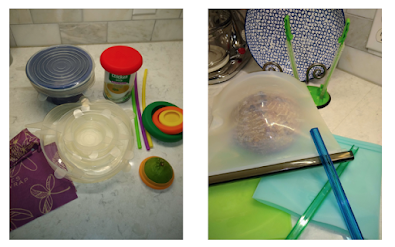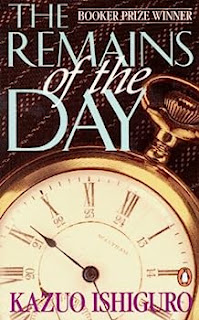The Almost Zero Waste Guide by Melanie Mannarino
Happy Earth Day!
So what can a regular person do? The answers starts with: little things. Because little things add up to big things when more and more people do them. That’s why I decided to get some guidance in changing my habits and mindset and this book is a great first step in that direction.
The Almost Zero Waste Guide provides suggestions for changes I can start making immediately. Some things I’ve never considered before like Meatless Mondays to reduce methane gases or buying bamboo razors and toothbrushes. Other things, I can already check off my list: hang your clothes on a clothesline, use cloth napkins, or bring your own reusable straws to coffee shops (a recent endeavor for us).
What I mostly gleaned from this book was a renewed enthusiasm to do better, opening my eyes to the consequences of my purchasing and other decisions which will affect our environment. And while I probably will NOT be bringing my own cloth napkin to a restaurant, I just may look into getting a compost barrel, or rain barrel, among other things. Bottom line: this book makes me want to take more control of my own environmental impact and try to reduce the things that get tossed into the methane-producing landfills. I feel I CAN make a difference.
My Own Past Efforts
USING CLOTHESLINES:
We've been hanging our clothes out to dry for years, and oddly enough my husband and I both ENJOY it. We have a retractable outdoor clothesline as well as an in door clothesline in our laundry room for the long winters or inclement days.
PRO: The clothes hung outside with the wind swaying them back and forth seem to be much less wrinkly. My husband’s t-shirts look much nicer coming off the line than from the dryer.
PRO: It’s much easier to fold sheets all by yourself when it’s on the line, as you just lift one side of the hanging sheet and walk it over to the other side, repearting until it’s small enough to lift off alone.
CON: In early fall, tiny smoky-winged ash aphids fill the air and stick on the clothes, but it doesn’t last a long time, and most of the time we can still hang them out and shake the buggers off.
TOP-LOADING VS. FRONT-LOADING WASHING MACHINE
Our front-loading washing machine recently died and we replaced it with…..drumrolls, please…. a top-loading washer. This is one of the biggest and most expensive mistakes (almost $800) I’ve made in a loooong time. A real dunderhead move. The only reason I bought a top loader was that all the front loaders now have elaborate digital/electronic panels. I just wanted a simple one where electronics wouldn’t be a problem, by the wisdom that the more electronics there are, the more things that can break. I wanted what I had before, and when I couldn’t find that, I opted for a simple top-loader. BIG MISTAKE! How does this relate to saving the earth, you ask? Read on.
CON: Even when using the “Wrinkle Control” setting on my new top-loader all my clothes now come out looking like several steamrollers drove over them a few times, imprinting more wrinkles in clothes that I’ve ever seen. And since we don’t use a dryer most of the time, I now have to start ironing things I would never have dreamed of ironing before. If your objective is to hang your clothes up instead of using a dryer, then choose a front-loading washing machine over a top-loader.
CON: I can no longer use my dry detergent, which I made by grinding Fels soap, and adding portions of laundry booster, and laundry washing soda. My clothes now all have stains from the detergent which we never had when using the front-loader. Clothes come out looking dirtier than when they went in the washing machine. I am forced to switch to the liquid detergents, which are not only more expensive, but means using more plastic containers on a regular basis instead of my cardboard boxes of ingredients which I only bought a couple times a year. More waste.
CON: The clothes come out much more wet and heavier than in the front-loader.
CON: For some inexplicable reason, per the manufacturer’s instruction I have to add water to my softener dispenser in the machine to dilute it. So I have to have a jug of water in my laundry room for that purpose.
PRO: I can’t think of a pro, because what we saved in getting a top-loader was not worth the frustrations and pitfalls.
CLOTH NAPKINS:
We switched to cloth napkins last year, more out of necessity when the grocery store shelves were bare during the first part of the pandemic, when all paper products like toilet paper, paper towels, tissues and napkins were hard to find. That's when I sewed several napkins from extra cloth I had and we started using them at dinnertime. We still use paper napkins for breakfast—bad on us. I might just have to sew a few more.
PRO: Easy to sew.
CON: If you have a large family, this may not be practical to have stacks and stacks of cloth napkins, but perhaps families could use them one day a week instead???
FOOD SCRAP CONTAINER
Also prompted by the pandemic, we began to reduce the waste of taking out half-empty kitchen bags because they stunk. Since we were trying to avoid going to the store so often at first (or at all), we didn't want to waste the bags. Instead, we discovered that we could put our scraps of veggies, coffee grounds, and other stinkies into a sealable container and take it out separately. (We do not have a compost pile or we could have put them to good use.) Now we keep a 3-pound empty OxyClean container in our pantry next to our garbage for stinkers.
PRO: Our kitchen bags don’t need to be changed as often.
CON: The container stinks when full, but I give it a quick wash after taking out the scraps and it’s fine again.
REUSABLE SILICONE BAGS AND OTHER ITEMS
My sister and sister-in-law have gifted us some nifty reusable kitchen storage solutions:
- Silicone Zip Bags: PRO: Easy to use and wash. CON: Don’t put raw bacon in the bags. Found out the hard way that smell really permeates into the silicone.
- Silicone Bowl Covers: PRO: Easy to use, wash, and store.
- Silicone Caps: Used for cans, lemons, limes, bananas, etc. PRO: Lots of uses. CON: Bananas can still get brown on the end, but they do in zip snack bags, too.
- Silicone Straws: PRO: Bright colors, easy to carry. CON: Kinda odd walking down the street with colorful straws in my hand. I may just get the kind that come in a case.
- Beeswax Food Wraps: PRO: Alternative to plastic wrap. CON: The wax wears off after a while.
WOOD CHIPPER
One last thing. In 2019 we bought a small wood chipper to break down small branches that we trim off of our trees and bushes.
PRO: Branches and twigs we would normally haul off to the dump now become mulch for our garden.
CON: The chipper we bought is for smaller garden use and can only chip branches up to an inch or so in diameter.
I would love to hear any tips anyone else has out there. Anyone have any creative ideas to do with all those Amazon boxes that get recycled? The pandemic forced me to do some good things, but I went the other way with online ordering which I never used to do that much. Last year I recycled more boxes than ever. Wouldn’t it be nice if Amazon had some kind of box reusing program, not just recycling—some place we could drop the boxes off and Amazon or other companies and people could pick them up and reuse them. Just a thought.
As for me, I have a whole new list of things I may try. But mostly, with each trip to the garbage, I may question myself as to what I could have done differently to make my load smaller.
If this book sounds like something you might want to purchase, remember, Save a Bookstore, Shop Local!
Happy Reading,
Happy Earth Day, Every Day,
Annette










Comments